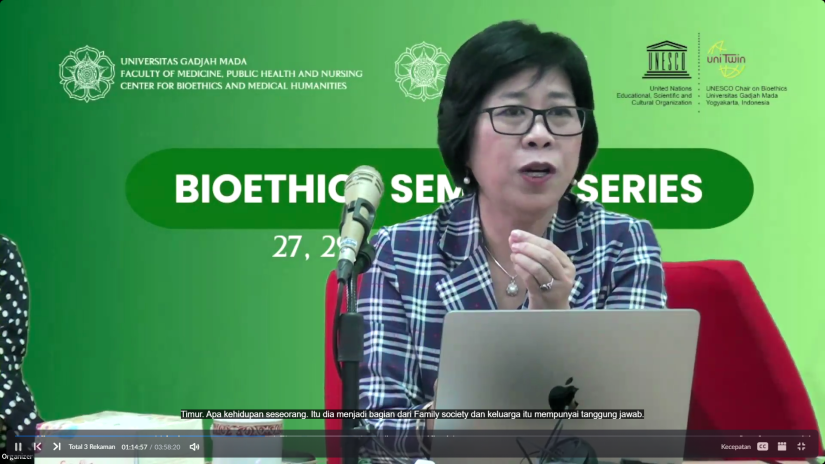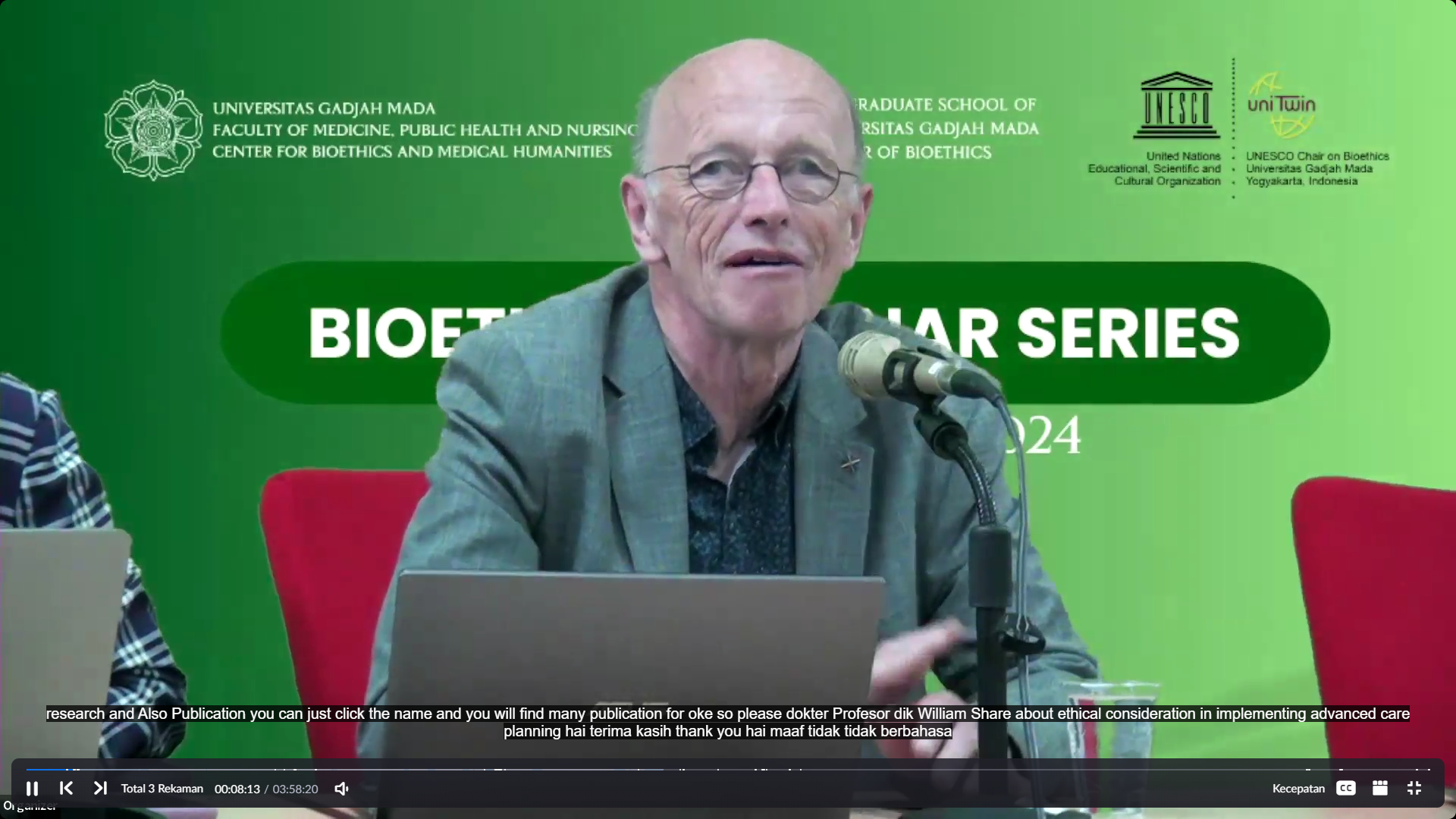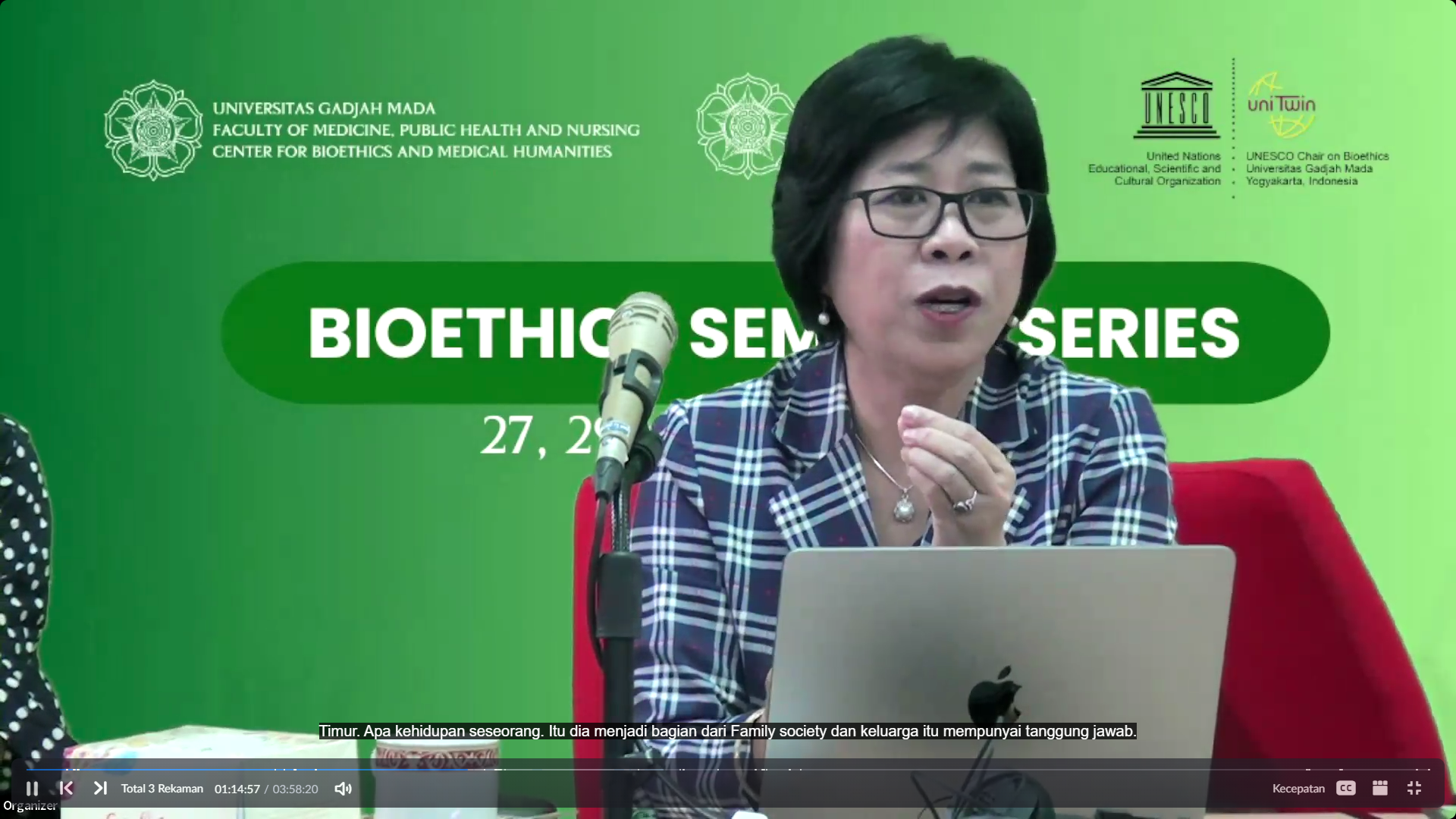
Advance Care Planning (ACP) or advanced care planning for patients is becoming increasingly important to avoid situations where patients receive care that does not align with their wishes, especially when they are no longer able to make decisions for themselves. However, despite the clear benefits of ACP, there are still many challenges in its implementation. Some of these include a lack of awareness and understanding among the public and healthcare professionals, cultural barriers, as well as legal and policy uncertainties governing its implementation.
The Bioethics Study Program at the Graduate School of Gadjah Mada University (UGM) held discussions on bioethical principles related to ACP, as well as ethical issues that arise in the implementation of ACP in various clinical contexts, packaged in the Bioethics Seminar Series on Advance Care Planning on Thursday, May 30th, 2024, conducted online. Prof. Dick Willmes MD, from the Department of Ethics, Law and Humanities, Amsterdam University Medical Center, Faculty of Medicine, University of Amsterdam, one of the speakers, stated that the goal of ACP is to help ensure people receive medical care consistent with the values, goals, and preferences of the patient during serious and chronic illness.
Meanwhile, Prof. Dr. Cristantie Effendy, S.Kp., M.Kes, from the Department of Surgical Medical Nursing, Faculty of Medicine, Public Health, and Nursing UGM, pointed out the misunderstanding about ACP where people sometimes assume that ACP is a discussion about death. “The reality is that ACP is an ongoing discussion about healthcare preferences. It encourages you and your loved ones to discuss and understand your values, beliefs, and desires,” she said. Prof. Cristantie also addressed the misconception that ACP is only for the elderly and the sick, whereas in fact, ACP is for everyone, including healthy individuals, young adults, professionals, and retirees, who are encouraged to discuss the type of healthcare services they desire.
Not only that, ACP is not meant to stop life-sustaining treatment, but patients can indicate a preference to discontinue active treatment or to receive other clinically appropriate treatment. Prof. Cristantie added that ACP does not mean that the medical team has given up, but rather it helps the medical team understand the patient’s wishes to provide the type of care and healthcare services that align with their preferences. Martina Kristanti, S.Kep., Ns., MN, PhD., from the Department of Basic and Emergency Nursing, Faculty of Medicine, Public Health, and Nursing UGM, also served as a speaker in this event.
It is hoped that ACP with this event can reduce emotional burden and conflicts among family members and assist healthcare professionals in providing more coordinated and ethical care. This activity can also support the implementation of Sustainable Development Goals (SDGs) number 3, concerning Good Health and Well-being.
Author: Arni Wistriatun
Editor:
Keyword: ACP, Healthcare services, good health, SDGs 3, SDGs 10


